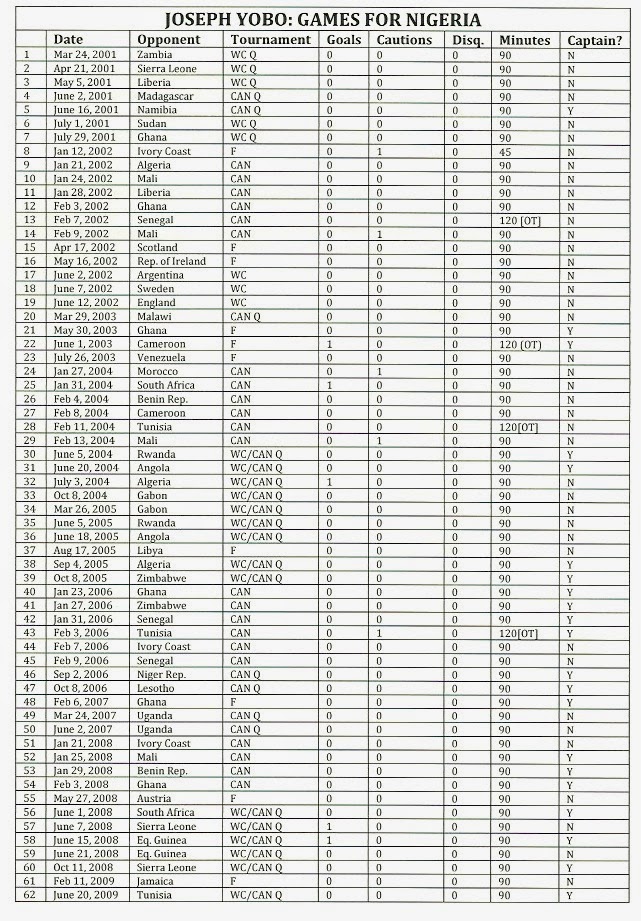Building the New Super Eagles
I am more convinced than ever that Stephen Keshi is on the right track in building a strong Nigerian national football team -- Super Eagles. Already, this has led to Nigeria winning the Cup of African Nations -- its first in 19 years! But it is not just about winning the Cup. It is also about how the team has chosen to play. The team is much faster, more aggressive defensively, and controls possession than it had done in recent memory.
I had watched one of the team's early games -- a 2-3 loss to Egypt in an international friendly -- and even then these ideas on team play had begun to emerge. On that day, we saw a team that pressured the ball and unsettled a highly regarded Egypt. Also on exhibit that day was the pace of the players. Nigerian football had before Keshi settled into a languid slow style of play but it became clear against Egypt that the team would play differently.
Of course, the team has grown since then. Before the Cup of Nations, I was convinced that Nigeria had a chance to win the trophy even though many expected either Ghana or Ivory Coast to emerge champion. That conviction came from the team's international friendly against a Catalunya Selection. The game ended 1-1 but I saw enough on that day to believe. The team was disciplined in defense with the team maintaining its shape and shifting to the strong side of the ball in a classic zone defense. While Catalunya craftily sought to counter the tactics by playing wide with the ball, Nigeria recovered in most cases to shift the defensive attention.
Winning the Cup of Nations later in South Africa was indeed not entirely unexpected. However, the way the team dominated the tournament was surprising against the more respected Ivorien team. Nigeria underlined its arrival with ball possession which it dominated against its opponents in each game except in the Ivory Coast game which the statistics showed a 50:50 tie on possession.
Beyond the team's play on the field, the coach has clearly made his mark on the team in several other ways. He has boldly dropped some previously 'sacred' players and then has steadfastly worked to build a strong local team from which the full national team has benefitted.
What the coach is building is a sustainable team. That much is clear. Importantly, he knows that the team is not complete. Not just yet. In the coming months we expect a continued building of this team as Nigeria seeks a place at the 2014 World Cup finals. Good luck.
I had watched one of the team's early games -- a 2-3 loss to Egypt in an international friendly -- and even then these ideas on team play had begun to emerge. On that day, we saw a team that pressured the ball and unsettled a highly regarded Egypt. Also on exhibit that day was the pace of the players. Nigerian football had before Keshi settled into a languid slow style of play but it became clear against Egypt that the team would play differently.
Of course, the team has grown since then. Before the Cup of Nations, I was convinced that Nigeria had a chance to win the trophy even though many expected either Ghana or Ivory Coast to emerge champion. That conviction came from the team's international friendly against a Catalunya Selection. The game ended 1-1 but I saw enough on that day to believe. The team was disciplined in defense with the team maintaining its shape and shifting to the strong side of the ball in a classic zone defense. While Catalunya craftily sought to counter the tactics by playing wide with the ball, Nigeria recovered in most cases to shift the defensive attention.
Winning the Cup of Nations later in South Africa was indeed not entirely unexpected. However, the way the team dominated the tournament was surprising against the more respected Ivorien team. Nigeria underlined its arrival with ball possession which it dominated against its opponents in each game except in the Ivory Coast game which the statistics showed a 50:50 tie on possession.
Beyond the team's play on the field, the coach has clearly made his mark on the team in several other ways. He has boldly dropped some previously 'sacred' players and then has steadfastly worked to build a strong local team from which the full national team has benefitted.
What the coach is building is a sustainable team. That much is clear. Importantly, he knows that the team is not complete. Not just yet. In the coming months we expect a continued building of this team as Nigeria seeks a place at the 2014 World Cup finals. Good luck.


Comments
Post a Comment